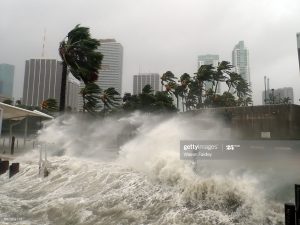In times of crisis, most people will prefer to ignore the warnings of the authority and try their best to go on with their lives as usual. This situation is not caused by stubbornness or lack of self-love; it is caused by a special type of cognitive bias known as the Normalcy Bias.
What Is Normalcy Bias?
Normalcy Bias (otherwise known as analysis paralysis, negative panic, and the ostrich effect) is a situation where people disregard warnings of disasters that will inevitably affect them. This cognitive bias causes people to under prepare for natural and human-made disasters, and this might eventually lead to loss of life and properties.
Example
Covid-19 Pandemic
A good example of the normalcy bias is the Covid-19 pandemic. When it was first announced in 2019, people doubted that the virus would spread as predicted and most countries of the world were under-prepared for that eventuality.
However, after the virus spread throughout the world rapidly, there were a few months of physical lockdown, economic downturn, health crisis and too many deaths. All this could have been avoided if the issue was treated with more seriousness.
Other historical examples of the normalcy bias include
- Hurricane Katrina
- 9/11 bombing
- the Titanic
- the Fukushima nuclear power plant and so many other examples.
Normalcy bias can happen anytime, and it is evident in our everyday lives when the brain refuses to process an imminent threat rapidly.
Stages
Normalcy bias happens in 3 stages
- the denial stage
- the deliberation stage
- the decisive stage
People will first deny the existence of the actual threat before finally accepting that it is real. They will then look for plans to manage the situation before taking action. If this process is not completed rapidly, it can be injurious or fatal to the person involved.
This article has been put together to show you the causes and effects of normalcy bias. Enjoy!
You may also like
| Who Invented Pocket Watches? |
| What are the Different Paracord Types? |
| How to Find Preppers in Your Area |
What Causes Normalcy Bias?
According to statistics, about 70% of people in the world will experience normalcy bias in the face of a disaster. This is because most people are creatures of habit and deviating from pre-planned routines, and dealing with the unknown is a very stressful process.
It takes about 10 seconds for the brain to process new information, and it usually does so by referring to old memories and classifying things. The brain cannot do this in times of disaster, and it will eventually enter a stress zone.
This will cause people to come to conclusions that may or may not be correct. People like stability and anything that threatens that is usually ignored.
How Does Normalcy Bias Impacts Your Survival?
Normalcy bias will always impact your survival which means you have to be rational and strategic when you notice you have this bias. There are two ways to deal with the cognitive dissonance caused by normalcy bias, and we will discuss both of them.
1. You Deal With Normalcy Bias by Maintaining the Bias
When there is a clear indication of an incoming disaster, maintaining the bias will not do you any good. Rumors are meant to be verified, and once that is done, you should not maintain the bias.
Denial Stage
At the denial stage of normalcy bias, you should be actively involved in gathering and verifying the facts. If the issue is not time-sensitive, you can take your time to assess the situation while still maintaining your bias. If you turn out to be correct, you will save yourself the time and resources it would have taken to get out of the situation.
However, if you analyze the facts rationally and you see that the authorities and the information sources have your best interest at heart, then you should take the second approach.
If you still maintain your bias at this point, then your survival will be solely based on the kindness of the disaster, and you will make the job of the government and the first responders that much harder.
2. You Eliminate Normalcy Bias by Responding Adequately and Quickly
For the sake of your life, the lives of your loved ones, and your valuable possessions, this is the best approach to adopt. Often, rumors of disasters turn out to be actual disasters, and you will save yourself a lot of heartache by getting out of the situation.
If your area or your region is prone to natural disasters, then you should always be on the lookout for information that might indicate an incoming disaster.
However, if the disaster is something new and different like the Covid-19 pandemic, your best bet will be to keep yourself informed and follow the instructions of the experts.
How to Prevent the Negative Effects of Normalcy Bias
The effects of normalcy bias are always negative, but the good news is that these effects can be managed. This responsibility falls mostly on the government and the media, but the people also have a part to play.
1. Responsibilities of the Government and Media
The government and the media have a responsibility to admit publicly and acknowledge the possibility of an incoming disaster. Once this is done, they can start forming safety plans and issue out clear warnings to the people affected.
Media
The media has a responsibility to keep reminding people of the impending disaster so they can believe them. People will believe what they have been told repeatedly. If the time frame of the disaster is short, then the media has even more work to do.
Government
When the disaster finally happens, the government should swing into action immediately and implement all their previously laid plans.
2. Responsibilities of the People
The people have a responsibility to listen to the authorities and safeguard everything of value to them. If they are trapped in the disaster, the first responders will have to work harder to rescue them, and this will not be possible in cases of fatalities.
Check out more content like this on our blog HERE.
Conclusion
We are wired to opt for stability and comfort. However, when information about impending threats or disasters comes our way, we should not be quick to cast aside the thought, but we should take action so that our families and valuables can remain safe.
Nobody hopes for a disaster, a pandemic, or a threat, but when it happens, we should deal with it and manage the situation. We should not ignore it and wait for it to get to our doorstep before taking action.
Learn more about survival tips, tricks, and more HERE.




